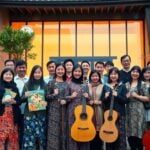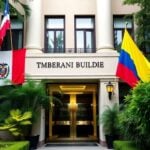Scholarship recommendation letters serve as a vital component in the application process, providing a unique perspective on a candidate’s qualifications and potential. These letters are often written by teachers, mentors, or employers who can attest to the applicant’s abilities, achievements, and character. In a competitive landscape where numerous candidates vie for limited funding, a well-crafted recommendation letter can significantly enhance an applicant’s chances of securing financial support for their education.
It is not merely a formality; it is an opportunity to present a holistic view of the candidate that goes beyond grades and test scores. The importance of these letters cannot be overstated. They offer scholarship committees insights into the applicant’s work ethic, leadership skills, and personal qualities that may not be evident from transcripts or resumes.
A compelling recommendation can illuminate the candidate’s journey, showcasing their resilience, passion, and commitment to their goals. As such, understanding how to write an effective scholarship recommendation letter is crucial for anyone tasked with this responsibility. This article will explore the essential elements of a strong recommendation letter, providing actionable tips and strategies to ensure that the candidate stands out in a crowded field.
Demonstrating the Candidate’s Qualifications and Achievements
Highlighting Academic Achievements
For instance, if the candidate has excelled in advanced placement courses or has received awards for academic excellence, these points should be highlighted with specific details. Mentioning the rigor of the courses taken or the significance of the awards can help scholarship committees understand the level of dedication and intellect the candidate possesses.
Connecting Qualifications to Scholarship Objectives
Moreover, it is beneficial to connect these qualifications to the scholarship’s objectives. For example, if the scholarship is aimed at supporting future leaders in science and technology, emphasizing the candidate’s participation in relevant extracurricular activities—such as science fairs, robotics clubs, or internships—can illustrate their commitment to this field.
Creating a Persuasive Recommendation Letter
By aligning the candidate’s achievements with the scholarship’s mission, the recommendation letter becomes more persuasive and relevant. This strategic approach not only showcases the candidate’s qualifications but also demonstrates their alignment with the values and goals of the scholarship program.
Providing Specific Examples and Anecdotes
To create a memorable recommendation letter, it is crucial to include specific examples and anecdotes that illustrate the candidate’s strengths and contributions. Rather than making broad statements about the applicant’s capabilities, providing concrete instances where they demonstrated exceptional skills or qualities can make a more significant impact. For example, if the candidate showed remarkable leadership during a group project, detailing how they organized team meetings, delegated tasks, and motivated peers can paint a vivid picture of their leadership style.
Anecdotes can also highlight personal growth and resilience. Perhaps the candidate faced challenges that tested their resolve—such as overcoming academic difficulties or balancing multiple responsibilities. Sharing these stories not only humanizes the candidate but also showcases their determination and ability to persevere in the face of adversity.
Such narratives resonate with scholarship committees, as they reveal character traits that are often as important as academic performance. By weaving in these specific examples, the recommendation letter becomes a compelling narrative that captures the essence of who the candidate is.
Highlighting the Candidate’s Character and Personal Qualities
In addition to academic qualifications and achievements, scholarship recommendation letters should emphasize the candidate’s character and personal qualities. Attributes such as integrity, empathy, and perseverance are often key factors that scholarship committees consider when evaluating applicants. A strong recommendation letter should provide insights into how these qualities manifest in the candidate’s daily life and interactions with others.
For instance, if the candidate has volunteered extensively in their community or has taken on mentorship roles, these experiences can illustrate their commitment to helping others and making a positive impact. Furthermore, discussing how the candidate handles challenges or setbacks can provide valuable context regarding their character. For example, if they faced a significant obstacle—such as a family crisis or health issue—and managed to maintain their academic performance while supporting others, this speaks volumes about their resilience and strength of character.
By highlighting these personal qualities through specific examples, the recommendation letter can convey a deeper understanding of the candidate as an individual, making them more relatable and appealing to scholarship committees.
Tailoring the Letter to the Scholarship and its Criteria
One of the most effective strategies for writing a successful scholarship recommendation letter is tailoring it to align with the specific criteria and values of the scholarship program. Each scholarship may have unique requirements or focus areas—such as leadership potential, community service, or academic excellence—and addressing these directly can enhance the letter’s relevance. Before writing, it is essential to thoroughly review the scholarship guidelines and understand what qualities or experiences are prioritized by the selection committee.
For instance, if a scholarship emphasizes innovation in technology, highlighting instances where the candidate has demonstrated creativity or problem-solving skills in tech-related projects would be advantageous. Conversely, if community service is a focal point, detailing the candidate’s volunteer work and its impact on their community can resonate well with the committee’s objectives. By customizing the content of the recommendation letter to reflect these criteria, writers can ensure that they present a compelling case for why the candidate is an ideal fit for that particular scholarship.
Concluding with a Strong Endorsement and Contact Information
Conveying Enthusiasm and Conviction
Phrases such as “I wholeheartedly recommend” or “I have no doubt that [Candidate’s Name] will excel” convey enthusiasm and conviction about the applicant’s suitability for the scholarship. This final affirmation can be pivotal in swaying decision-makers who are weighing multiple candidates.
Inviting Further Communication
Including contact information at the end of the letter invites further communication if committee members have questions or require additional insights about the candidate. Providing an email address or phone number demonstrates openness and willingness to support the application process further. This proactive approach not only reinforces confidence in the recommendation but also establishes a connection between the recommender and the scholarship committee.
Enhancing the Overall Effectiveness
In summary, crafting a thoughtful conclusion that encapsulates strong support for the candidate while offering avenues for follow-up can significantly enhance the overall effectiveness of a scholarship recommendation letter. By incorporating specific examples and anecdotes while concluding with a strong endorsement, recommenders can create compelling narratives that resonate with scholarship committees. Ultimately, these letters play a crucial role in helping deserving candidates secure financial support for their educational aspirations, making them an essential part of the scholarship application process.


























